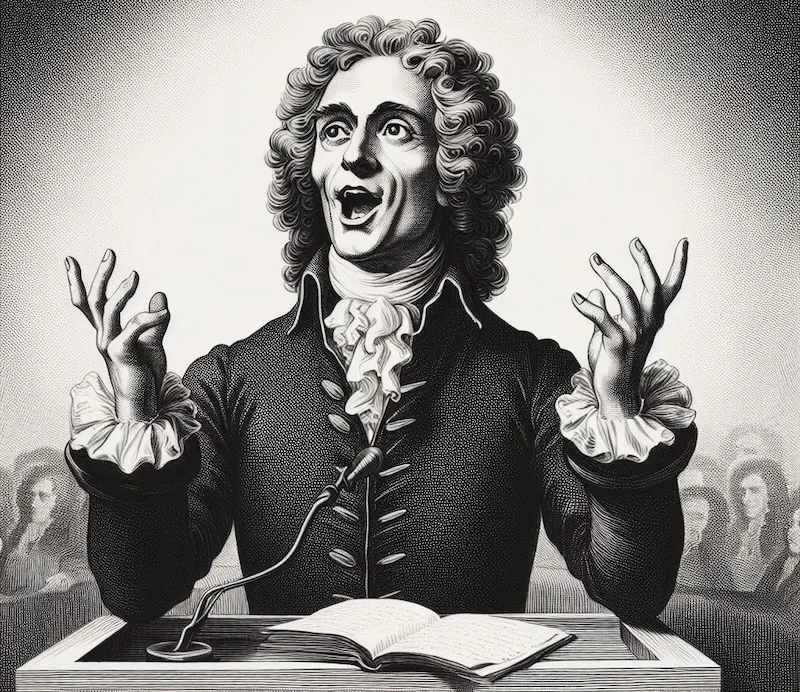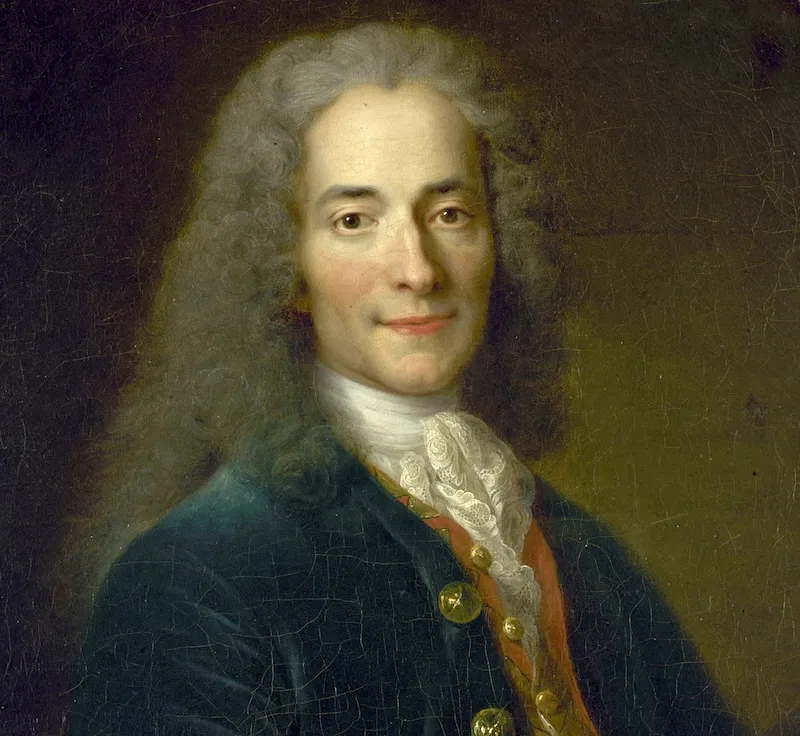
Created by Bing
"Le secret d'ennuyer est... de tout dire.
The secret of being boring is to say everything."
— Voltaire (1694–1778)
Voltaire

Voltaire was an influential French Enlightenment writer, philosopher, historian, and social critic born on November 21, 1694, as François-Marie Arouet. He is best known for his wit, his advocacy for civil liberties, including freedom of religion and freedom of speech, and his sharp criticism of the French government, the Catholic Church, and other institutions of his time. #### Literary Works
Voltaire wrote prolifically in various genres, including plays, poetry, novels, essays, and historical and philosophical works. Some of his notable works include the satirical novel Candide, the philosophical tale Zadig, and the historical novel The Age of Louis XIV.
Philosophy
Voltaire was a proponent of reason, science, and tolerance. He emphasised the importance of empirical evidence and critical thinking over blind faith and superstition. His philosophy often critiqued the established order and championed individual freedom and autonomy.
Critique of Religion
Voltaire was critical of organised religion, particularly the Catholic Church, which he saw as oppressive and hypocritical. He advocated religious tolerance and believed that individuals should have the freedom to practice their own faith without interference from the state or religious authorities.
Political Views
Voltaire was a staunch advocate for civil liberties, including freedom of expression and separation of church and state. He often used his writings to criticise the monarchy and the aristocracy, as well as to challenge authoritarianism and censorship.
Impact
Voltaire's ideas had a significant impact on the Enlightenment movement in Europe and beyond. His works were widely read and influential, shaping intellectual discourse and inspiring political and social change. He remains one of the most celebrated and studied figures of the Enlightenment period.
Legacy
Voltaire's legacy extends beyond his literary and philosophical contributions. His advocacy for tolerance, reason, and individual rights continues to resonate in modern discussions on democracy, human rights, and the role of religion in society.
Voltaire died on May 30, 1778, leaving behind a rich body of work that continues to be studied and debated by scholars and readers around the world.